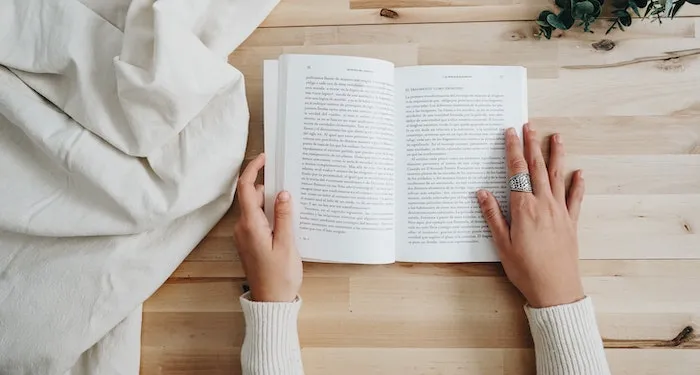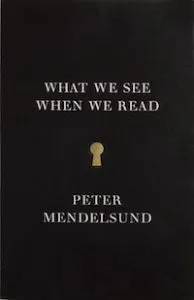
“Books That Made Me Forget I Was Reading” is Trending. But What Does It Mean?
If you spend time in bookish online spaces, you may have seen posts on YouTube, TikTok, and Instagram titled “books that made me forget I was reading.” But what does this mean? Does it refer to a specific mood while reading, or is it just an expression meaning “books I loved”?
This popular tag has 22.3 million TikTok posts as of June 2024. The trend fascinates me for several reasons. First, it usually yields recommendations for books readers love passionately. Second, it acknowledges that reading is such a subjective experience, it’s different for each person and often difficult to describe. I love how it’s always phrased in first-person (“books that made ME forget I was reading”). The posts don’t claim that other readers will have similar reactions or that their own perspective is the best or only one.
This hashtag has been used millions of times, but I still don’t know exactly what people mean by it. Unlike recommendations on specific topics, it’s too vague to tell me anything about the books themselves. So, I asked my fellow Book Riot contributors what “books that made me forget I was reading” meant to them and why some books evoked this feeling. Emotional stakes and empathy for the characters were important factors.

“For me, it’s about the intensity of emotion. If an author does a great job of making me care about the character(s) and the situation they’re in, I get in a zone or a bubble where I zero in to the story so closely that I forget there’s anything outside of it,” contributing editor Eileen Gonzalez replied.
Author and Book Riot contributor CJ Connor remembered an experience of reading as a child: “feeling as if I were literally transported up on the mountain where [the characters] were. Like I could feel the cold and ‘see’ the scene. I haven’t really had something like that before or since.”
Editor Danika Ellis said: “I don’t really visualize while I read, so for me, it’s more of a flow state. Just like when I am really into a TV show I’m watching, I don’t actually think I’m in the show, I’m just absorbed by the story and not thinking about anything else. It’s also when I stop noticing the writing style and am thinking only about the story/meaning. It’s a connection to the emotions of the characters for me, too: feeling claustrophobic when the characters do, or feeling my heart racing during a dramatic scene.”
Book Riot contributor and TBR coordinator Jamie Canavés said: “For me, this is the point of reading and what it means to ‘escape into a book’: you no longer are aware that you’re holding a book (or that you have earbuds), you don’t see the individual words (forget it’s a narrator in your ears), and you are instead physically in the scene/world, feeling, hearing, seeing, smelling everything and watching it play out in front of you like watching a TV episode or film.”
When using the viral tag, readers often describe a feeling of being in the zone or losing track of time. TikTok user Kit @TheVirgosLibrary_ wrote in a caption: “Books that made me forget I was reading — entirely consuming, pulling you into the pages and out of reality as the hours fly by.” Laura @LauraLovesReading also mentioned a feeling of escaping reality.
Losing time is the opposite of the way I experience reading. I have OCD, and for me, that means I almost always know the exact time. I usually listen to music while writing or reading printed books or ebooks. Far from losing track of time, music and books help me keep time — down to seconds and beats. For some people, losing track of time is relaxing, but for me. it would probably cause anxiety. So, I hyperfocus, but it starts with a conscious intent to enter a creative or relaxed state.
When I read or write fiction, I visualize characters in the back of my mind. It’s not usually dramatic or overwhelming like I’m in the scene. I sometimes see a story playing out, almost like a movie, but I still prefer to stay focused on the language.
Peter Mendelsund’s 2014 book What We See When We Read explores the idea that people’s feelings and imaginings while reading are amorphous and difficult to pin down. He wrote that readers imagine Anna Karenina according to their own ideals, more than Tolstoy’s physical descriptions — maybe visualizing her as an actor who portrayed her instead. “We imagine that the experience of reading is like that of watching a film,” Mendelsund wrote, but of course, that’s an imperfect comparison, not the real experience.
Katie Prince for Electric Lit and James Wallace Harris and Danika Ellis for Book Riot each wrote about experiencing aphantasia, which means they don’t visualize their thoughts or memories. There’s no right or wrong way to experience art or anything else. We each bring our own unique perspective. Sensory details are important aspects of many stories, but narratives, themes, and characters are intangible.
For many people, “books that made me forget I was reading” has a similar vibe to “I couldn’t put it down.” Both expressions hint at how captivating reading can be. All our observations describe literary immersion: feeling completely engrossed in a story. Although it might seem vague or cliché, the tag “books that made me forget I was reading” brings together books readers strongly recommend and connects to abstract ideas that can’t be summed up in hashtags, reminding me that everyone experiences reading (and even consciousness) vastly differently.
